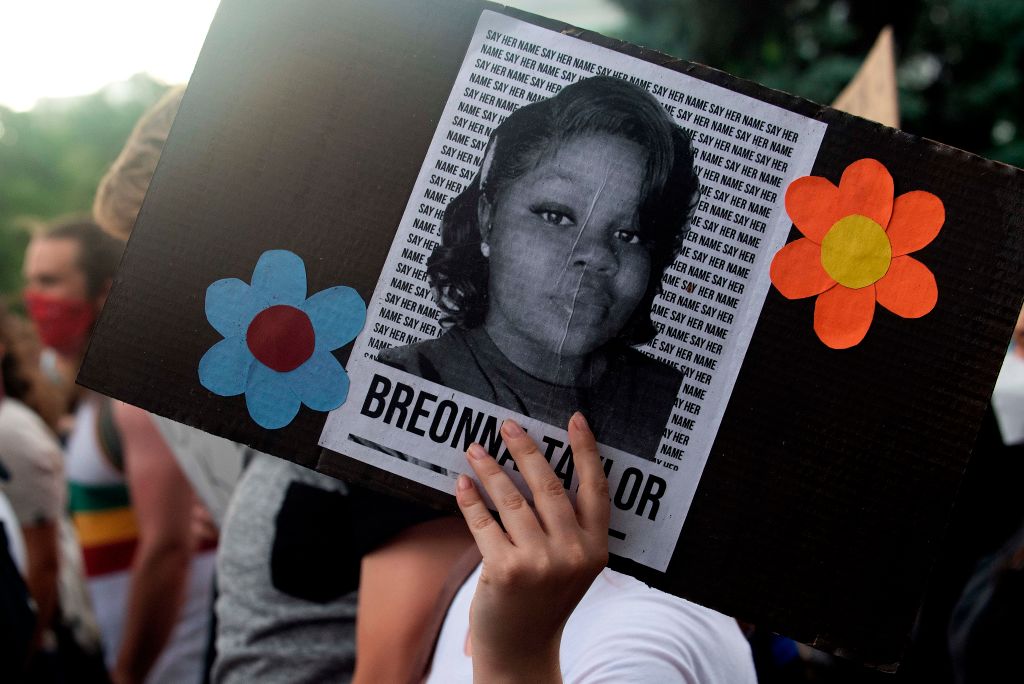
Source: JASON CONNOLLY / Getty
In 2015, the Golden State Warriors in Oakland, CA, hosted several games during the NBA finals. Warriors fans flooded the area to support the home team, and in the end, the Warriors secured the championship in game six. This was the team’s first title since 1975. The city exploded with celebration. But this series was not Oakland’s only significant story during the spring of 2015.
In the months before and shortly after the NBA finals, dozens of Oakland Public School girls ––a number of whom were African American––disappeared. Despite the significant number of girls gone missing during the same period of time and the undeniable consistency with disappearance cases of Black girls around the country, including the disappearances of teens in Washington, DC, the victims’ stories were largely ignored or fleetingly covered by local and national media. Since then, the reports of trafficked Black women and girls have only continued – but without widespread public attention.
These are not the only forgotten stories. In early October 2019, a South Carolina man was charged with sex trafficking nearly 700 Black girls. More than 20 Black trans women were murdered in 2019 alone. And on March 13, 2020, police shot Breonna Taylor multiple times during a botched raid on her apartment in Louisville, KY. This month, two Black trans women, Riah Milton and Dominique Fells, were found dead. Tony McDade, a Black trans man, was killed by police in Tallahassee on May 27. The list goes on.
Sexual abuse and fatal violence are only part of the many facets of the injustices Black women face. A 2017 report from Georgetown Law’s Center on Poverty and Inequality found that adults view Black girls as more “adult or mature, sexual, and promiscuous” than white girls. Furthermore, there is a perception that Black girls need less “nurturing, protection, and support and are more independent…”
As of today, the officers who killed Taylor still have not been charged. On June 5, Taylor would have turned 27. As we reflect on her life, we can’t continue to ignore stories like hers, those of thousands of Black women and girls around the country. Our society must look closely at how we respond to and ignore or drive discussions on injustices faced by Black women and girls around the country. Here are three things to keep in mind as we work to keep these women’s narratives alive.
- Ongoing and Comprehensive Reporting. We must have additional comprehensive reporting of murders and disappearances of Black women and girls across the country, These stories should be tracked over time, with specific information on how investigations have progressed. These stories should be covered on mainstream sites, as well as publications specifically for Black women and girls.
- Race, Gender-based Data. As we reimagine systems to lift up the needs of Black women and girls, institutions and governments must collect race-based data that can influence policy solutions and recommendations. This can be done through partnerships and grants that are led by and target the needs of Black women and girls.
- Unification and training. It takes a village, and the village needs training. When our workspaces, houses of worship, and community centers struggle to champion all Black women and girls, we must grapple with the challenges to unlearn harmful behaviors and beliefs that fuel patriarchy, homophobia, internalized racism, transphobia and other pathologies that fuel the fire of forgotten stories of Black women and girls. Trained professionals can provide tools and training to unlearn, as needed.
We must share and amplify the stories and the negligence and discrimination that Black women continue to face in the United States, including the stories of young girls, transwomen, Afro-Latinas, and the incarcerated. Rather than tacit acceptance of social exclusion and harm, we must continue to examine and fight against the detrimental impact of ignored Black women and girls. Rest in power, Breonna Taylor.
Dr. Joiselle Cunningham is CEO of Pathways to Creative Industries and Senior Advisor at HERE to HERE. Dr. Cunningham previously served in the Obama Administration and received her doctorate from the Harvard Graduate School of Education.









